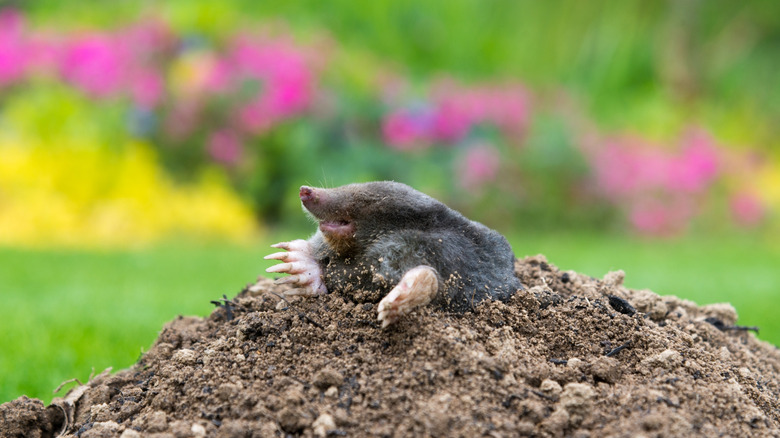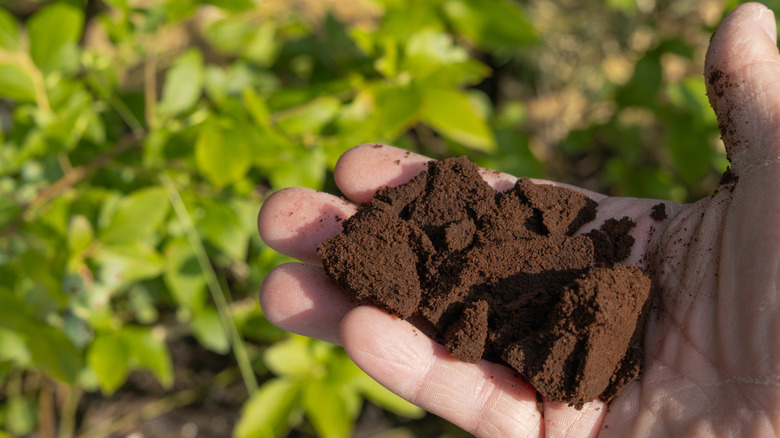Why WD-40 May Not Be The Best Solution For Getting Rid Of Garden Moles (And What Is)
When garden moles start tunneling through your lawn, it's tempting to reach for whatever quick fix promises fast results. For many DIY enthusiasts, that means grabbing a can of WD-40. It's a popular hack that often pops up on forums and gardening blogs, where people recommend spraying it into mole tunnels, hoping the smell or chemicals will drive the pests away. While this might seem like a handy trick, your garden might be one of the places where WD-40 should not be used.
For one, the chemicals in the product can harm the soil, plants, and beneficial insects. It's also not designed for outdoor pest control, and using it this way may pose environmental risks. Luckily, there's a safer, more natural method that may help drive moles away — at least temporarily. It's just as easy, and it only requires what might already be in your kitchen: Used coffee grounds.
While this isn't a solution backed by scientific research, many gardeners swear that garden moles don't stand a chance against this kitchen staple. As coffee grounds are biodegradable, sprinkling them around your garden to keep moles out generally doesn't pose a threat to the soil or your plants. Plus, most people either drink coffee or keep it on hand for guests, so grounds are usually easy to come by. This makes them a low-risk, low-effort option worth trying out.
Replace WD-40 with coffee grounds for a healthy mole-free garden
To get rid of moles in your backyard and garden with the help of this method, just take some used coffee grounds and sprinkle them directly into mole tunnels and around areas where you've seen signs of their activity. This likely works because coffee grounds give off a strong smell that might deter these pests from your property. Sensory irritants are often very useful at keeping pests away, especially if there is a different area that can accommodate their needs without being bothered. For the best results, refresh the grounds every few days, especially if it rains — this will help maintain the strong scent that may keep moles from returning.
Be careful not to spread coffee grounds too close to your plants, though. Seeds and seedlings might not be too happy with the effects, as coffee grounds might interfere with their growth. Aside from this drawback, coffee grounds seem like a much safer, more environmentally friendly alternative than harming your soil and plants with WD-40.

